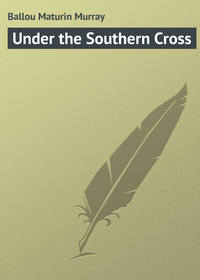 полная версия
полная версияBiography of Rev. Hosea Ballou
"At this period of my life," says Mr. Ballou, "my health was very indifferent. I had most of the time a severe pain in the pit of my stomach, and my appetite was far from being good, and so debilitated was I in strength that I have even been obliged to sit while I preached. It became necessary for me to procure a vehicle to journey in, being too weak to ride on horseback; however, by care and good advice, I gradually recruited. My travelling for that period was extensive, from Cape Ann east, to the Connecticut River west, to Richmond north, and New London and Hartford south. All my Sabbaths were employed, and many lectures were attended during each week. I preached in meeting-houses when they could be obtained, sometimes in school-houses, sometimes in barns, and not very seldom in groves and orchards, and often in private houses.
"To the people, the doctrine I preached was new, and the opposition lacked not for bitterness; and such was my condition that I was constantly in conflict, and never allowed to put off my armor to rest, day or night. All manner of evil reports concerning me were invented, and the worst of slander circulated, all tending to make me regardless of what my enemies said. My answer to all this slander was, while they speak thus falsely of me, I am in no danger; if I am injured I shall do that myself."
Theology was a subject of most sombre hue at this period in New England. Calvinism had twined its choking fibres so closely about the sacred tree, that its branches drooped, and its leaves withered in the sunshine of truth. The doctrines taught from the pulpit, while they were listened to as a duty, were yet repulsive to the heart of the hearer, and abhorrent to his very soul. The principle of divine love was clouded wholly from sight by the dark mass of murky error that enshrouded all scripture teachings. The duties of man to his Maker and to himself were held forth under fearful threats, as a penalty for disobedience, but the idea that in the performance of our duty real happiness is alone to be found, while sin most surely brings its own punishment, was never publicly advanced. Sinfulness, aside from the liabilities of eternity, was not held up to be avoided, but rather acknowledged to be pleasant and desirable, while those who trod the paths of righteousness were taught to consider themselves as self-sacrificing martyrs, and told to look for their reward in eternity. It was these obvious inconsistencies that at first challenged the attention of the subject of this memoir. And when he stood up and boldly exposed these palpable errors, when he preached love while others preached wrath to the people, it is not singular that those who were so diametrically opposed to him in faith should be ready to believe and propagate any stories that might reflect upon his character, and thus detract from his influence as exercised upon those who so eagerly listened to him, and in whose hearts, in the very nature of things, he was sure of an answering and approving sentiment.
It is a matter of regret that Mr. Ballou has left no record of his journeyings and labors during this important period of his clerical career, as such a narrative would have been most deeply interesting to his family and friends. The amount of labor he performed must have been prodigious, and fully accounts for the enfeebled bodily condition to which he alludes. Every fibre of his intellectual frame must have been constantly in a state of extreme tension; for his was not the easy task of preaching on the Sabbath a written discourse which he had taken a whole week to prepare, but, as we have said, he was called upon almost daily to address large audiences and promiscuous assemblies. Nor was his the pleasant duty of the navigator who follows the course of the stream and the tide. He was a pioneer; he preached a new doctrine; and, as he says, "the opposition lacked not for bitterness." It is not surely an exaggeration to declare that Universalism in those days was popularly regarded with as much hostility as Infidelity itself is now. Hence, in addition to the severe fatigue of travel, the necessity of finding constantly new arguments and new illustrations, to sway the minds of constantly changing auditors, he had to battle valiantly, like a soldier of Christ, against the most vigorous and determined opposition.
In this condition, how mentally and physically trying must have been his incessant labors in his Master's vineyard! Neither by night nor by day could he for a moment lay aside his armor. Standing alone, there was no respite to his exertions. Later in life he beheld a host of able followers ready to relieve him of a portion of his duties. His doctrine was no longer the theme of obloquy and outrage. He outlived calumny and detraction. But it will be seen that even in extreme old age he did not spare himself; he did not suffer sloth to creep upon his spirit, nor rust to gather on his armor. He was still the favored champion of his cause, and ever ready to minister to the spiritual wants of his brethren in the faith.
With the close of his itinerant labors, we now come to another important and interesting epoch in his life.
CHAPTER VI.
BECOMES A SETTLED MINISTER
The first place in which Mr. Ballou engaged permanently as a settled minister was in the town of Dana, Mass., in 1794-5. The society here, not feeling able to pay for an engagement which should occupy him the whole time, engaged him for a portion, leaving him to supply the societies in Oxford and Charlton, Mass., also, a portion of the time. Having now become located, and his residence known, large numbers of people from a distance gathered to hear him, not only on the Sabbath, but frequently for several consecutive days of the week besides. Many there were who held his doctrine to be such damning heresy that they counted it a sin even to listen to it; while others of his religious opponents, holding that "there is no error so crooked but it hath in it some lines of truth," came and listened, and the seed not unfrequently fell into good soil, bringing forth a hundred fold.
"Often was I greeted at this time," says Mr. Ballou, "by people who would say, 'Sir, I heard you preach a sermon, a few weeks since, from such a text,' naming it, 'and I have been uneasy and anxious in my mind ever since. If your doctrine is true, I must understand and believe it. But, alas! I fear it is too good to be true; it is so different from what I have been brought up to believe that I cannot divest my mind of early prejudices sufficiently to receive it, though Heaven knows how gladly I could do so.' Then the individual would quote some passages of scripture which seemed to him to be insuperable objections to the doctrine I professed, and I would do all in my power to explain these passages to his mind, in the way I had myself already learned to interpret them. Usually, with the blessing of Divine Providence, I was successful, at least in a large degree, and on the following Sabbath I was pretty sure to find the honest seeker after truth among my congregation, and the following Sabbath he would be there again, attentively listening to the word, until, finally, he came forth and openly espoused the blessed doctrine of God's impartial grace. Thus encouraged with the growth of the seed that I strewed by the way-side, my task was a grateful one to my soul, and I was constantly gladdened by the visible fruits of my efforts in disenthralling men's minds of the dogmas and blind creeds that early prejudice and the schools had inculcated."
Let it be borne in mind that at this period he was preaching Universalism on the principle of the final restoration of the whole human family, not having satisfied himself yet that there would be no punishment in a future state of existence, or, indeed, ever thought upon this subject to any great extent. Owing to the very trifling amount of his remuneration from the society in Dana, while he resided there, besides tilling a small portion of land, he was obliged to keep school during the week, and this engagement was often broken into for lecture purposes. His keeping and teaching school was a benefit to him beyond the pecuniary consideration he received, inasmuch as it familiarized him with many branches of an English education which he would perhaps otherwise never have acquired, or at least not nearly so thoroughly as he did by this means.
Uninfluenced by the sneers of his opposers, and the poor remuneration he received for the preaching of his belief, he never for one moment wavered in a steadfast purpose, even at this early period, to preach Christ and him crucified, and the unsearchable riches of God's goodness. In this connection we are reminded of the remarks of the editor of the New Covenant, Chicago, Ill., who, in his obituary notice of the decease of Mr. Ballou, says: —
"But now we are called to mourn the departure of one who, when our cause had scarcely a name to live, – when it was the subject of the sneer of the bigot, as well as of the profane curse of the irreligious, and even its warmest friends scarcely dared to hope for its resurrection to honor and respect, – bent the energy of a giant mind to a life-long defence and promulgation of the truth, – by his unanswerable arguments turned the sneer of bigotry into a smile of hope, and the curses of the profane into blessings, – of one who has done more in this age for the liberalizing of religious sentiment than all his contemporaries combined. Strong in the faith he preached, and steadfastly believing it must at last triumph, from early youth to mature old age he has kept on his armor and fought the good fight of faith, and death even found him at his post as a faithful sentinel, and in the midnight hour he could answer, 'All is well!'"
At the age of twenty-five, and while resident in the town of Dana, he became acquainted with the family of Stephen Washburn, in the town of Williamsburg, Mass., and, after an intimate acquaintance of about a year, he married their youngest daughter, Ruth Washburn, who was some eight years younger than himself. His wife, like her husband, had been brought up to habits of industry and economy; she proved a kind, constant, and devoted help-mate through his entire life, sharing with him every joy and every burthen, and, by the influence of a naturally strong and well balanced mind, a cheerful and gentle disposition, exercising a most goodly influence upon his life and labors. She became the careful and prudent mother of a large family, nine of whom lived to rear families themselves during the life of their parents. Through their whole lives there was a remarkable oneness of feeling, and a depth of affection evinced by each for the other, that years served only to increase, and old age to cement the more closely. But of this matter we may yet speak more fully.
Mr. Ballou resided in the town of Dana for about seven years, devoting every spare hour to careful study of the Scriptures, systematizing his time by a careful division of the hours of the day, and permitting himself but a very brief portion of time for sleep.
When we say that he devoted his time so assiduously to study, we do not mean that he occupied himself in the perusal of books alone. He thought much, communed with himself alone, and even at that period accustomed himself to a degree of inward or mental communion with himself, that would seem to exclude the world about him, for the time being, from his sense of seeing or hearing. This was more observable in later years, when he often sat long in his study thus, sometimes with his eyes closed, sometimes with their pupils directed to the floor or the ceiling of the room, his lips moving, and at last, having seemingly weighed well some important matter, he would rouse again as if from a trance, and look about him with apparent satisfaction at the result he seemed to have accomplished. Sometimes these moments were followed by the use of the pen for records in his note-book of texts and sermon heads, sometimes by a reference to the Scriptures, and sometimes by a walk in the open air; then his lips would be seen to move, and he would be quite oblivious to all outward circumstances. He studied thus, carefully and deeply. At times he would walk in the fields or the woods while thus occupied; and the family never disturbed him by any remarks, or by calling his attention, while he was thus mentally absorbed. In another part of this biography, reference will be found concerning this peculiarity, as exhibited at a later period of his life, and observed by one who was an inmate of his family, and a student of divinity with him. The family were accustomed to his mood in these matters, but it usually affected a stranger, or one not familiar with him, in quite an impressive and solemn manner; it seemed so much as though he was communing with unseen spirits, and a power that was invisible to those about him or to himself, save through the powers of his mental vision.
It would seem that the little bodily rest which he allowed himself at this period must have induced physical debility; and yet it did not appear to do so. In travelling, a large portion of his short journeyings were made in the evening; sometimes at midnight even, and often before the break of day, in order to fulfil necessary appointments without encroaching upon his arrangements at home. When stopping for his horse to take rest and food, himself much fatigued, he would take his watch from his pocket, and, laying it upon a table near some place where he could find a recumbent position, he would carefully mark the time, and say distinctly to himself, "I will sleep now for just one hour, when I must awake and go on." Singular as this may seem, he has told us that he never failed to awake at the expiration of the hour, and, much refreshed, he would mount his horse and press on to fill some professional engagement, perhaps twenty or thirty miles from the stopping-place. At other times, while his horse was eating, he would deliver a sermon, and, having completed it, would, without stopping for any physical refreshment for himself, start off once more on his mission.
"In searching the Scriptures," he says, "to enable myself to preach as the divine oracles taught, I became satisfied that those who were then called Universalists had founded their doctrine on wrong principles, as well as other denominations. The doctrine of man's native depravity, of original sin, of the deserts of eternal misery, of the vicarious sufferings of Christ, by which he endured, in man's stead, the divine penalty of God's law, whereby man could escape the punishment due to his sins, was believed by those who called themselves Universalists, as well as by Calvinists: also, the doctrine of the Trinity, holding that Christ is equal to God, or, in other words, is God, being the second person in the holy Trinity. All these notions, as it appeared to me, were essential errors, constituting a mass of confusion. I soon renounced all these views, and preached only God, and one mediator between God and man, the man Christ Jesus. All my brethren in the ministry, and all our friends, stood on the old platform, and I found that I had to contend with Universalists as well as with partialists. But I went to my work in earnest, laboring, with all my skill and with all my limited talents, to convince my brethren in the ministry, and all who heard me preach, that the doctrines of the Trinity, of depravity, of eternal penalty, etc., were neither the doctrines of the Scriptures nor of reason. The opposition to my sentiments fast gave way among Universalists, though even among them I met with as bitter opposition, in some instances, as from other denominations. The first time I preached in Bro. Murray's church, in Boston, was during his absence in Philadelphia, and I then came out fully with my Unitarian views, which produced great disturbance. Some were violent in their opposition, while others, and not a few, fell in with my manner of explaining the Scriptures. I was then twenty-eight years of age."
Mr. Ballou says that his declaring his views on this occasion was the cause of "great disturbance." This disturbance was so earnest that some few of the audience, more bitter than the rest, rose in their seats and declared that the sentiments which had been uttered were not in accordance with Mr. Murray's views, etc. Whereupon Mr. Ballou simply informed them that he had been invited, without solicitation on his own part, to preach in that desk; that he came there to preach no one's convictions but his own; that he never had consulted, and never should consult, the taste of his audience as to the doctrine he preached to them; but that he should proclaim the truth, as, by the help of Heaven, he had been enabled to learn it from the Bible, and the truth only!
On the subsequent day Mr. Ballou was formally waited upon by a committee from the Society, who thanked him for the discourse, and a majority coincided also in his peculiar views.
The conclusions as to doctrine at which he arrived were based upon severe study and profound reflection; and when we consider the age at which he had elaborated and enunciated a creed of such vast importance, a creed so entirely in advance of his contemporaries, we cannot fail to be most forcibly impressed with the extraordinary originality and remarkable precocity of his intellect. Such early vigor and maturity would have been astonishing in one who had enjoyed all the advantages of early training, all the aids afforded by the best theological institutions and instructors; but in one who had passed through so many hardships, overcome so many difficulties, and was so emphatically self-taught and self-made, they can only be regarded as evidences of the highest genius, and the immediate favorable interposition of Divine Providence.
His unshaken faith and inflexibility of conviction are evinced by the fact that he stood firm, not only against the opposing sects, but against the disciples of the improved doctrine which he first preached. It requires not a little energy to confront declared foes; but to contend with friends, to risk the loss of their favor and support, is a trial which few have the boldness to sustain. But the subject of this biography knew not what temporizing meant; his whole life, his whole intellect, all his energies, were devoted to the discovery of truth, and the enunciation of the truth he discovered. Had he stood entirely alone, without one single friend, without one single proselyte, he would have spoken as he did, boldly, earnestly, candidly, the apostle and defender of his faith. The inspiration of his mission was from on high; neither applause nor opposition changed his views, or in the least affected his serene and constant equanimity.
The patient and unruffled manner in which he always held a controversy has been often remarked of him; himself the mark for all manner of personalities and low reflections, he never descended to such a mode of warfare, being fully content in the justice and power of his cause, and considering that as more than equal to low cunning, or, indeed, any trickery of those who opposed him so bitterly. Flattery would have been equally powerless in effect upon him, for he looked not to man for approval, but to his own conscience and his God. Love of applause is a most natural trait in our dispositions. The hero of a hundred battles feels his heart glow afresh at the grateful meed of praise; the politician reads the glowing accounts of his own eloquence with secret gratification; and who is there so humble that is not susceptible of flattery, who so high in worldly honors that they do not acknowledge the potency of applause? And yet we shall be sustained in the remark by all who knew the subject of these memoirs intimately, when we say, that neither ridicule nor flattery moved him in the least, the single purpose of his life being his Master's business; and he ever acknowledged himself, that he really endeavored to be (and beyond which he aspired not) the servant of all men. Few persons, with his power over the masses, and holding the position that was universally accorded to him, but that would have often brought themselves as individuals, with their personal interests and desires, before the public; self-aggrandizement will almost always discover itself more or less in prominent public men. But he knew no such incentive; he had one grand object in view, one which he never lost sight of, and which was more than paramount to everything else combined; – it was to inculcate the religion of God's impartial goodness and eternal grace.
In the thirtieth year of his age, he was induced to accept of the invitation of the towns of Woodstock, Hartland, Bethel, and Barnard, Vt., making the latter place his home. While resident here he devoted himself to ardent and constant study, and in the year 1804 produced his "Notes on the Parables," one of the most popular and useful books, even to the present day, in the Universalist library. It has passed through numerous large editions, and a new one, at this present writing, is about to be put to press. It is a book containing nearly the same amount of matter as the present memoir in the reader's hand. This book was written and published at a time when Mr. Ballou's health was really suffering from the effects of his unremitting labors, both mental and physical.
"My health," he says, "in those years which I passed in Vermont, was generally very good. I had some time, previous to removing from Dana, been gaining health and growing more corpulent, so that my uniform weight for several years was about two hundred pounds." But at the time when he wrote the "Notes," for a considerable period he had been over-tasked, and so much so as to materially affect his health. The roads about the country were of a very poor character, and being unable to use a vehicle on many of the routes over which he passed, he was frequently obliged to accomplish his journeys on horseback, which was a severe draft upon his strength. In his first preface to the edition of Notes on the Parables, the author thus refers to the subject of the book: —
"In my travels through the country in discharge of duties enjoined by the ministry of the Saviour of sinners, I have met with more opposition to the gospel preached to Abraham from false notions of the parables of the New Testament, than from any other source. Often, after travelling many miles and preaching several sermons in a day, I have found it necessary to explain various parables to some inquiring hearer, when my strength seemed almost exhausted. At such times I have thought a volume, such as the reader has in hand, might save me much labor, and I have often said to myself, If God will give me a few weeks' leisure, I will, with his assistance, employ them in writing 'Notes on the Parables.' This favor has at length been granted, though it was by depriving me of that degree of health that was necessary to the performance of the journeys which I had already appointed, yet preserving so much as to render me composed in my study."
This is undoubtedly one of the most valuable books in the Universalist library; particularly valuable from the fact of its treating, in the clearest and most forcible manner, upon those peculiar doctrinal points which, more than all others, have been the theme of contention among professed Christians. At the time when Mr. Ballou published this work, his mind was not fully made up as to the subject of punishment after death; but the matter had already resolved itself to this in his mind; that if any suffer in the future state it would be because they would be sinful there. It was not long subsequent, however, that he came to the full knowledge and conviction that the doctrine of future punishment was nowhere taught in the Bible, and this creed he thenceforth ever most assiduously preached on all occasions.
In his preface to the fifth edition the author says: – "On account of so many of the parables being used by believers in endless punishment to support and enforce that sentiment, the author of the Notes was induced to study them with special reference to the question whether they might not, with more propriety, be applied in a different manner. Of this fact he became fully satisfied; even as much so as he is now. But, though he entertained no scruples on that point, he was not so happy as to be fully satisfied, in every case, as to the true intent of the parable. In this situation he cautiously endeavored not to apply any parable to a subject which was not found to be embraced in the system of truth which the Scriptures clearly and evidently support. Little harm is done by applying a parable to a subject to which it was not intended by the author to apply, provided the subject to which it is misapplied be a truth clearly supported by either Scripture or man's experience; but to misconstrue any passage of the divine testimony so as to give support to what is not true, is unquestionably no small damage; and if the error be of magnitude, whereby our Heavenly Father is represented in an unlovely character, or our confidence in his goodness diminished, such misconstruction is not only a reprehensible violence on the Scriptures, but a dishonor to their divine Author. I am persuaded that a just knowledge of the parables is almost indispensably necessary to a knowledge of the doctrine preached by Christ, as much of his public communication was in this way. It is in the parables of Christ that we learn the nature of the two dispensations or covenants; the situation of man by reason of sin; the character of the Saviour as the seeker and savior of that which was lost; the power of the gospel as a sovereign remedy for the moral maladies of man, and its divine efficacy in reconciling and assimilating the sinner to God. It is by the parables that we learn the unprofitableness of legal righteousness in point of justification to eternal life; the absolute necessity of becoming new creatures, in order to enter the kingdom of God; the true character of the Saviour as the Lord our Righteousness, and his divine power to make all things new."









